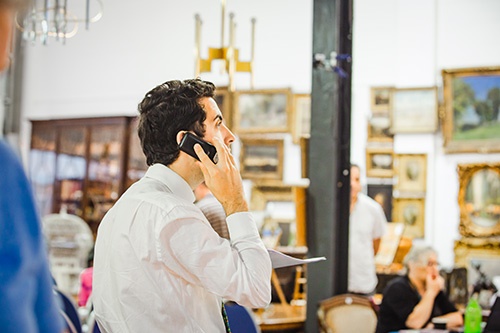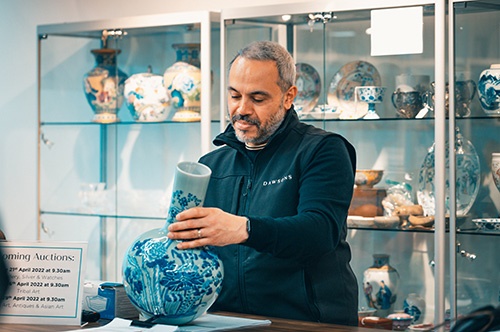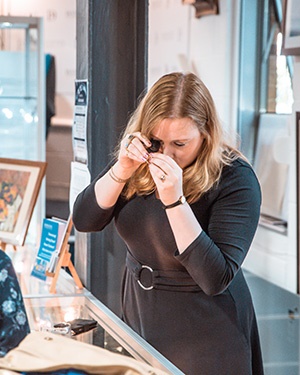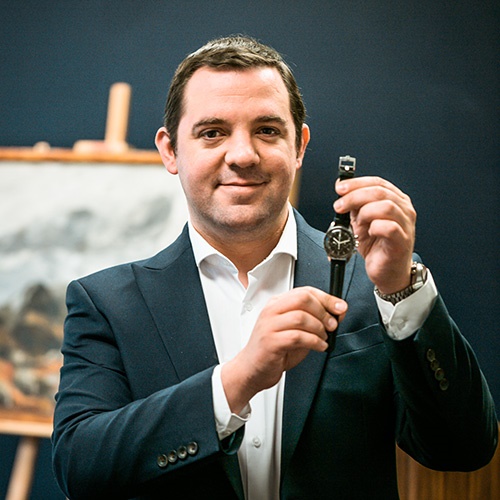High Street vs Auction House
Why pay High Street prices, when you can go direct?
Auction houses have been subject to some criticism regarding their fees over the years, we take a look at these costs and explore where you are likely to get better value for your money.
06/12/2021
Buying Antiques from your local auction house can be a fun, rewarding and simple process, yet there are still so many people who shy away from bidding. With environmental considerations and upcycling becoming the new norm, Antique emporiums and boutiques are in demand more than ever. When you go into one of these stores, you find something you like with a fixed price tag, you can purchase it and take it home to enjoy immediately. Reputable dealers will also provide you with some information on the item, including a provenance, and it is likely that the item will be in good second-hand condition or have been restored. So how does this experience differ from buying a similar item at your local auction house?
The price you pay at auction can deviate from the auction estimate significantly, and there are no guarantees what the final price will be until the hammer comes down. Knowing the difference between the current market value and auction value is an important part of your homework when buying from auction. Everyone enjoys getting a good deal, so understanding what you would pay for a similar item from a store versus what the item usually sells for at auction, will be pertinent to establish this. Whilst the time it takes to purchase an item from auction will depend on when the sale is scheduled to take place, it allows the prospective buyer time to do their research and consider all the factors before committing to the piece.
Unlike your High Street store, an auction house consigns items for sale and doesn’t actually own them, so how do they make any money? They charge a commission, usually to the buyer and the seller. While many people feel the practice of charging a buyers and sellers commission is audacious, there are many complimentary services provided for from these fees. It’s worth considering them before making assumptions.

What are Buyer’s fees?
It is the duty of the auction house to provide a fair and accurate description of an item and disclose any issues with condition they may discover. It is worth noting that an expert Valuer (employed by the auction house) will spend time viewing and researching the item to verify its authenticity, before cataloguing it for sale – and will also be able to provide a condition report upon request. Whilst the buyer has a responsibility to do their own research and determine their own findings, they will rely on the auction house to assist. Whether they view the item in person or request additional images and details from afar, this is a service being provided which ultimately has a cost.
Commission
Buyers are charged a commission fee on top of the final hammer price; this percentage varies by auction house. As an Internationally renowned auction house, with an in-house digital marketing team able to reach a huge global audience, Dawsons charge a very competitive 23% plus VAT. Keep in mind that this VAT is only payable on the commission, and not on the total hammer price (unless otherwise stated, for example, unmounted diamonds will incur a VAT charge on the full hammer price as per the Auctioneers Scheme).
Other Charges
There are a few other charges that you might be liable for – so make sure you familiarise yourself with these before you bid.
If you bid online, there will be an additional fee charged by the online platform, at Dawsons, this varies from 3% to 4.95% plus VAT depending on which platform you choose – these fees are payable to the online provider and therefore should be considered a separate cost. You should find that even after the auction fees and platform charges are added on, you’ll still be acquiring a great item at a price lower price (often far lower) than you would find in any High Street store.
Occasionally Works of Art, Sculptures and Paintings may be liable for Artist Resale Rights. One of our expert team will be able to advise you accordingly and provide you with a copy of the percentage breakdowns based on hammer price. These royalties are payable to an outside organisation, but the auctioneer will collect and transfer these fees as part of their offering.
Another factor to consider, is shipping costs. Here at Dawsons, if you do not live locally to the auction house, or are not able to collect in person, we can offer Royal Mail Special delivery for small non-breakables or recommend several couriers who will be able to assist. We also offer our clients the option of collecting from either our Hampstead or Maidenhead office at no additional cost.
Auction houses will make it clear how soon after a sale a lot must be collected, failure to collect your item within the disclosed time-period (normally 5 working days) will probably result in storage charges. This is because an auction house will not have additional storage space, they are constantly moving items in for the next sale. Do keep in contact with the auction house in order to avoid these penalties, or indeed to agree on a fixed storage charge if you are unable to collect within the disclosed collection period.

What are Seller’s fees?
Think about if you were to list something on Ebay or Etsy – you are charged a fee to list the item, another fee when you sell the item, a fee for whichever platform you are using to accept payment, marketing/promotional activities are available for a further cost, and so the list goes on. Consigning your item to an auction house involves similar activities, but at a far more sophisticated and specialised level – so why wouldn’t there be a fee involved?
When you consider selling your items through auction, you will initially require a valuation – which is provided by the auction house at no cost (utilising the time of an expert Valuer). Make sure you use an auction house that deals in the kind of item you’re selling. This is an important caveat, if you want to realise a true price for your item at auction. Once you have decided which items you would like to sell, there is the matter of getting the items to the auction house. If you need assistance with collection and delivery, Dawsons specialist team will be able to assist. All relevant fees will be discussed with you, and as mentioned above, will include a commission and an entry fee.
You will also be able to agree a reserve price (the minimum amount you are willing to receive) should you wish to have one, this cannot be higher than the low estimate of an item; i.e. If you have been told your item will sell for £1,000 – 1,500, the highest reserve you could expect is for £1,000. This reserve is kept confidential, and the relevant specialist will explore the best options for you and your item.
Once your items are on the premises, the rest is up to the auctioneers! Your wares will be identified, comprehensively researched, catalogued, cleaned (if required and safe to do so), photographed, tagged, stored and then displayed. Marketing and promotional activities will also commence at this point, including, advertorials, social media, contacting potential buyers and setting up viewings. At Dawsons, we also utilise bespoke digital marketing AI that identifies interested parties across the globe who will have a specific interest in your items; this cutting-edge marketing increases the number of potential bidders and maximises the sale price achieved at auction.
Once the items have been sold, the auction house will endeavour to collect proceeds from the buyers and arrange to have this paid into your bank account once monies have been received (within 30 working days of the auction date), less any fees or charges.
Reputable auctioneers have overheads like any other business, and a monetary margin that they need to operate within in order to be a success. The cost of highly experienced expert staff, a suitable premises for display and storage, bespoke digital marketing, specialised photographers, insurance, equipment, vehicles, fuel and so forth. When you think about the value-added services provided at each level, it is not unreasonable to expect to pay a fee for this service.
Beware… of auction houses who charge zero seller fees! Ask yourself how they afford to do it? What infrastructure do they have? Find out if they have a Saleroom? Who are the expert Valuers within their team that will be researching and cataloguing your items? How are your valuable items going to be looked after? Where will they be stored? What insurance cover do they have? Do they have the marketing reach needed to achieve maximum value at auction?

In Summary
When purchasing an item from the High Street, it is worth contemplating that you are possibly buying an item that may have been subject to the auction process already. Which means in short, you are paying all of the Auction costs, any additional cost to the dealer, as well as their profit. The dealer is providing a service with their expertise, they have “footed” the bill upfront, displayed the item, researched the item, they may have also restored the item, so who would argue that they are not entitled to their final price tag.
Items consigned to auction are on behalf of a seller – therefore, the auctioneer never owns the item they are selling, but they are liable for ensuring condition, detailed descriptions and cataloguing, adequate insurance, photography, displaying the item, marketing and promotion, etc. Whilst all the services provided by an auction house will of course be part of the offering, it would be prudent to consider what all these offerings might cost when added up, as they are all costs that need to be covered by the fees an auction house charges.
Read more: Auction vs Private Sale >
Please do get in touch, should you have any queries or maybe you have items you would like to have valued.
We would love to hear from you.
Call us on 0207 431 9445 or get in touch via email on info@dawsonsauctions.co.uk.

Aubrey Dawson
Aubrey has over 20 years’ experience as an Auctioneer & Valuer under his belt and is our resident watch expert (he loves them). You may have been fortunate enough to have seen Aubrey in action on TV, as he was a regular on several BBC programmes over the years (including Bargain Hunt and Antiques Roadshow).
Watches Clocks Medals & Militaria